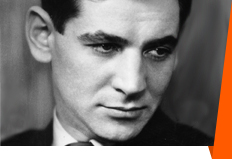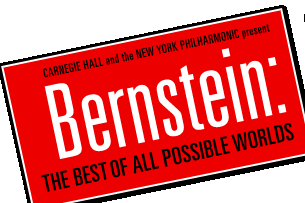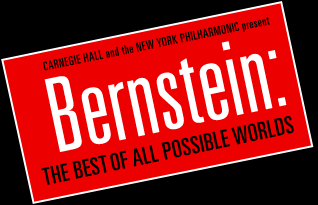
NOTES ON THE PIECES
- Leonard Bernstein
- Arias and Barcarolles
- Halil
- Concerto for Orchestra (Jubilee Games)
- Mass
- On the Town
- Prelude, Fugue and Riffs
- Serenade (After Plato’s Symposium)
- Symphony No. 1, “Jeremiah”
- Symphony No. 2, “The Age of Anxiety”
- Symphony No. 3, “Kaddish”
- West Side Story Suites
Concerto for Orchestra (Jubilee Games)
Throughout his career as a composer, Leonard Bernstein often found himself dismissed by his contemporaries as a “reactionary” composer, but these accusations were misinformed. Bernstein wrote music from the heart in an eclectic, “American” style that he developed over many years, and, although he did not choose to become part of any musical fashion, he experimented constantly with different styles.
Excerpt from Bernstein’s Concerto for Orchestra - “Jubilee Games” (III. Diaspora Dances: Vivace)
Israel Philharmonic Orchestra / Leonard Bernstein, Conductor. Deutsche Grammophon.
Find this and more of Leonard Bernstein’s work at ArkivMusic.com ›
In the mid-20th century, serialism, the system of composition devised by Arnold Schoenberg early in the century, attracted many converts, including Igor Stravinsky and Aaron Copland in their later years. Bernstein rejected such musical language as “artificial,” but he nevertheless applied it to a number of his works, and played with eight-tone (octatonic) scales in place of the traditional scale of seven or 12 notes. He also incorporated crosswords, anagrams, word games, and puzzles, which he loved, into his works: His 1974 ballet Dybbuk, for example, made use of mysterious anagrams and numerology as a musical extension of the metaphysical powers of the Kabbalah.
Bernstein employed all these elements, as well as aleatory (chance) techniques and improvisation, sometimes to the accompaniment of pre-recorded tapes, in his Concerto for Orchestra (originally Jubilee Games), a two-movement piece written to celebrate the 50th anniversary of the founding of the Israel Philharmonic. The players are instructed to shout or whisper numbers in Hebrew to signify the number 50, and there are dances in unusual meters, assigned through gematria (numerical values representing various letters of the Hebrew alphabet).
Despite all these “contemporary” experiments, the music that emerges in the Concerto for Orchestra is still immediately recognizable as Bernstein: brilliant, diverse, and, ultimately, always entertaining.
—Paul Myers
Paul Myers, a classical record producer for more than 40 years, is the author of several books, including a biography of Leonard Bernstein (Phaidon).
© 2001–2008 Carnegie Hall Corporation
- Home
- |
- Multimedia
- |
- Press
- |
- Partners
- |
- Supporters





